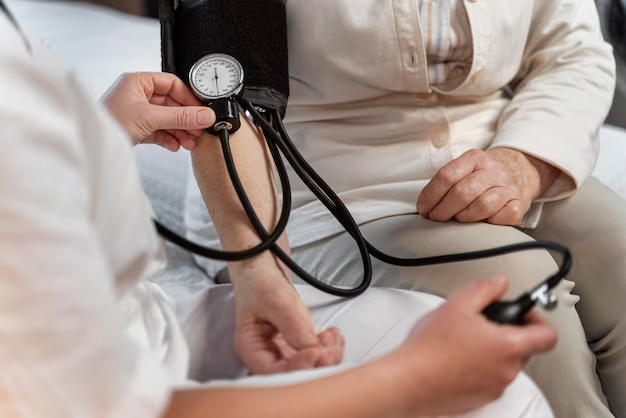Your Guide to How Many People Have Hypertension
What You Get:
Free Guide
Free, helpful information about HyperTension FAQ and related How Many People Have Hypertension topics.
Helpful Information
Get clear and easy-to-understand details about How Many People Have Hypertension topics and resources.
Personalized Offers
Answer a few optional questions to receive offers or information related to HyperTension FAQ. The survey is optional and not required to access your free guide.
Understanding Hypertension: How Many Are Affected Worldwide?
Hypertension, commonly known as high blood pressure, is a pervasive health concern affecting millions of individuals across the globe. But just how widespread is this condition, and what are the implications for those living with it? Let’s dive into the numbers and explore how hypertension impacts health, while considering practical solutions available for those affected.
The Global Burden of Hypertension
According to the World Health Organization (WHO), over 1.28 billion adults aged 30-79 worldwide are estimated to have hypertension. This staggering figure underscores the prevalence of the condition, which often goes undiagnosed and uncontrolled. Alarmingly, around 46% of adults with hypertension are unaware they have it, which poses significant health risks, including heart disease and stroke.
The prevalence of hypertension varies by region due to factors such as diet, lifestyle, and healthcare access. In many low- and middle-income countries, the condition is poorly controlled, primarily because healthcare services may lack the resources for early detection and treatment.
Why Hypertension Matters
Health Risks:
Uncontrolled high blood pressure can cause long-term damage to the heart and blood vessels, leading to cardiovascular diseases, kidney failure, and even vision loss.
Economic Impact:
Hypertension not only affects personal health but also has substantial economic implications. The cost of treating complications and lost productivity can burden national health budgets and families, particularly in economies with limited healthcare support.
Finding Relief: Government Aid and Support
Living with hypertension requires medical management and lifestyle changes, which can lead to financial strain. Thankfully, several assistance programs and resources can help:
Government Medical Aid:
Programs like Medicaid in the United States offer health coverage to eligible low-income individuals, which may include access to hypertension medications and regular check-ups.
Prescription Assistance Programs:
Many pharmaceutical companies provide medication discounts or free medication to qualifying individuals with limited income or without insurance.
Community Health Initiatives:
Local clinics and health departments often offer free health screenings and educational programs focusing on lifestyle changes such as diet and exercise to help manage hypertension.
Navigating Financial Assistance and Debt Relief
Managing healthcare costs can be stressful, especially when dealing with a chronic condition like hypertension. It’s crucial to explore available financial assistance options to minimize the burden:
- Healthcare Grants: Look for federal and state health grants designed to aid individuals with chronic diseases.
- Debt Relief Programs: If healthcare costs have led to debt, consider consolidating your medical debts or seeking out debt relief programs.
- Credit Card Solutions: Some credit cards offer low interest or deferred payments on medical expenses, which can be a temporary relief option.
Educational Opportunities to Better Health Management
Understanding hypertension is a major step in prevention and care management. Consider these resources:
- Online Courses: Free and paid courses offered by universities and health organizations to deepen your understanding of hypertension and its management.
- Local Workshops: Many communities host workshops on healthy living and chronic disease management, providing practical skills and support.
📊 Financial and Educational Resources:
- 🏥 Medicaid: Provides health coverage for eligible low-income individuals
- 💊 Prescription Assistance Programs: Discounted or free medications
- 🩺 Community Health Initiatives: Free screenings and educational programs
- 💼 Healthcare Grants: Federal/state aid for healthcare costs
- ⚖️ Debt Relief Programs: Assistance in managing medical debt
- 💳 Credit Card Solutions: Low interest on medical expenses
- 🎓 Online Courses: Understand and manage hypertension
- 🎯 Local Workshops: Practical skills for managing health
By being informed and proactive, individuals living with hypertension can manage their condition effectively, ensuring a healthier, more economically stable life.
What You Get:
Free HyperTension FAQ Guide
Free, helpful information about How Many People Have Hypertension and related resources.

Helpful Information
Get clear, easy-to-understand details about How Many People Have Hypertension topics.

Optional Personalized Offers
Answer a few optional questions to see offers or information related to HyperTension FAQ. Participation is not required to get your free guide.


Discover More
- a 66 Year Old Female With a History Of Hypertension
- Are Eggs Bad For Hypertension
- Are Eggs Good For Hypertension
- Are Endocrine Disorders Causing Hypertension Rare
- Can Adderall Cause Hypertension
- Can Alcohol Cause Hypertension
- Can Allergies Cause Hypertension
- Can Anemci People Get Hypertension
- Can Anemia Cause Hypertension
- Can Antibiotics Cause Hypertension
